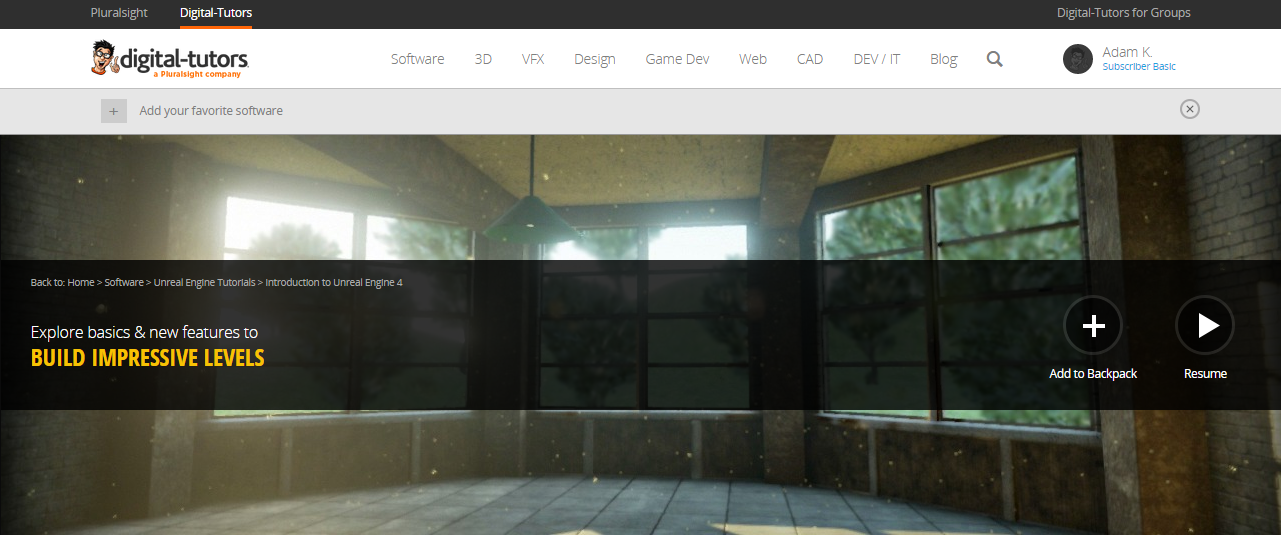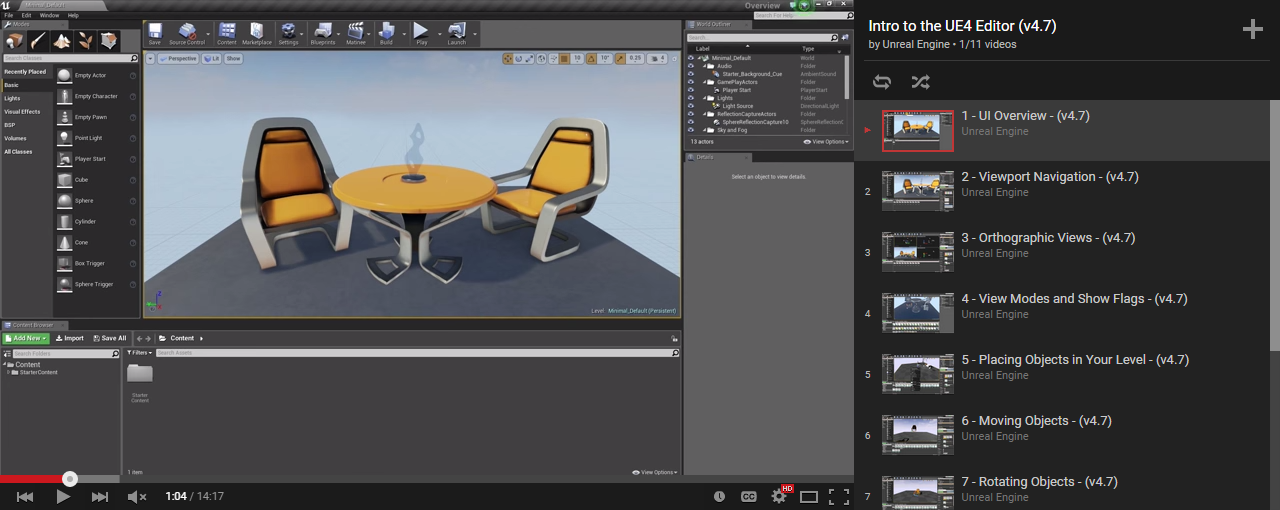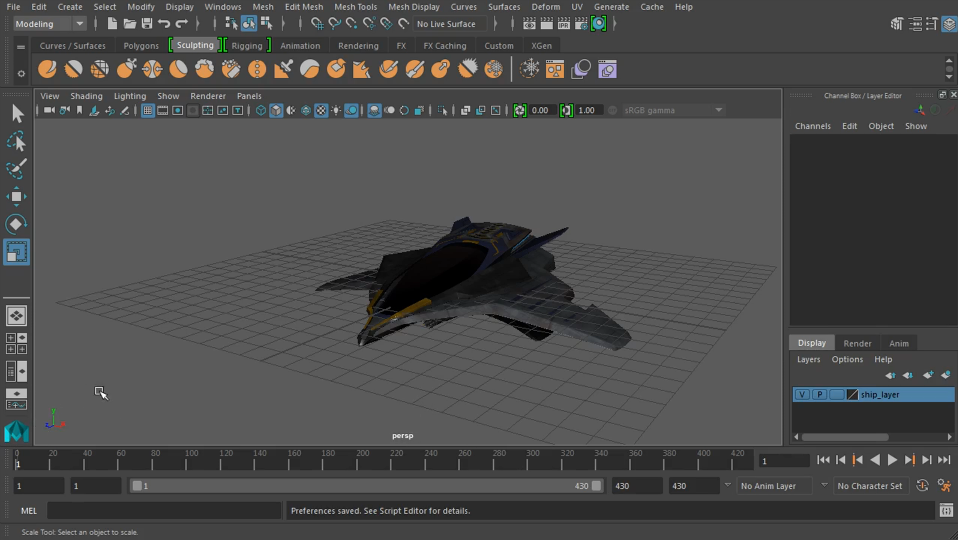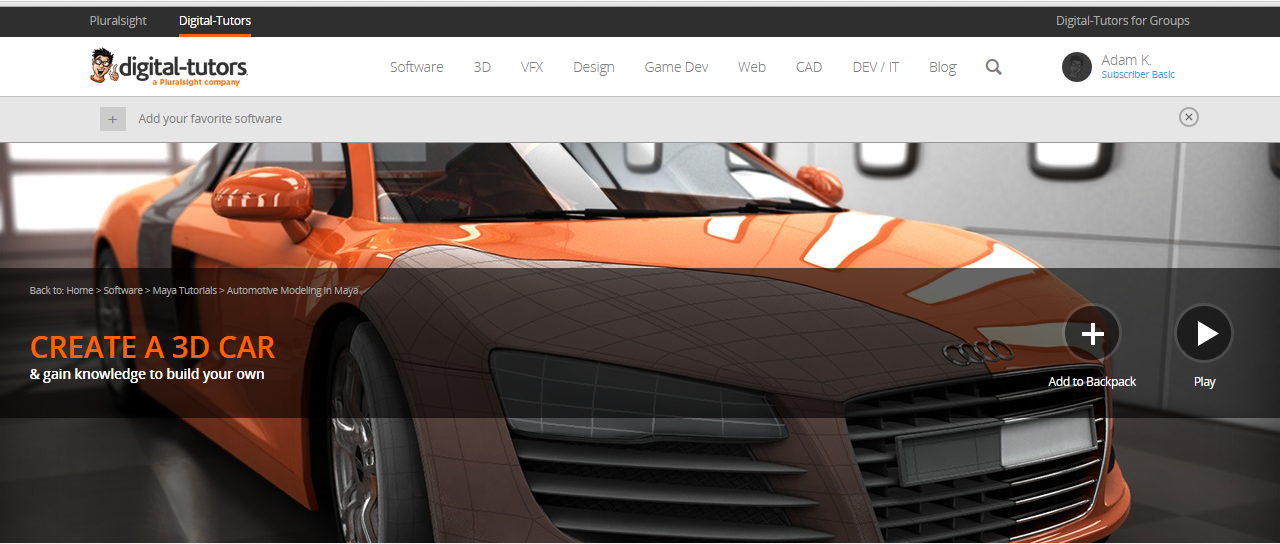Learning the Tools
For the past week I've been spending my evenings learning how to use Unreal Engine and Maya. Both software packages are some of the most powerful tools available for game development, but learning them takes time and patience. I found a few helpful video tutorials on YouTube for getting started with Unreal Engine 4, including those posted on the Unreal Engine channel: https://www.youtube.com/user/UnrealDevelopmentKit. One site that kept coming up in my searches was Digital-Tutors. They have tons of awesome tutorials, but they aren't free. I recently got a Pluralsight subscription, so when I discovered that it granted me access to Digital-Tutors, I was thrilled! There is a 10 day free trial for the site, so I definitely encourage you to try it out. After that it's very reasonably priced and based on how much I've learned in the past few days, absolutely worth it.
I started out with the Introduction to Unreal Engine 4 tutorial, but was only a few videos in before I hit a frustrating roadblock - sample tutorial assets are not included in the basic subscription, only the advanced subscription. It was at this point that I decided that I couldn't get very far just using primitive objects (cubes, spheres, etc) to build my environments and I also couldn't rely on sample assets forever. I have grand dreams of building massive spaceports and sprawling landscapes, so I might as well jump in now. If I can't make 3d mesh models, I'm stuck using free assets or buying them from someone else. This led me to dig into some of the other tutorials on Digital-Tutors, and I quickly discovered that they have videos for all of the best graphics related software.
Choosing Maya LT
I already knew about three mainstream 3D modelling packages, Maya, 3ds Max, and Blender. The first two are widely used by professional game studios and movie production studios, while the third is very popular with indie game studios and hobbyists because it is completely free. I had some experience with Blender, but I've always wanted to learn Maya or 3ds Max. Both are developed by Autodesk, are very powerful, and very expensive. What I was pleasantly surprised to learn though, is that Maya has a version targeted at indie game developers called Maya LT. It's only $30/month, which seems like an awesome deal to me. The main difference is that Maya LT doesn't support all of the powerful rendering functionality that I won't be needing for VR development anyway. The best thing is that all of the tutorials for the full version of Maya that are focused on 3d modeling apply directly to Maya LT.
If you cannot afford the monthly fee, I recommend you look into student discounts or use Blender. If you can afford it, Maya LT is awesome. I've been doing tutorials for that for the past few days and I can already do things I figured would take months to learn. I was able to create a rough approximation of the missing asset from the Unreal Engine tutorial in just a few minutes.
Essential Tutorials
If you're jumping into this with me, there are some essential tutorial types I recommend you focus on. You should start with a tutorial that teaches you how to navigate the software and use the basic features. You need that firm foundation in order to build anything on your own.
To get started with Unreal Engine 4, I'd recommend the Intro to the UE4 Editor tutorial.
For Maya LT, I'd recommend the Exploring Maya 2016 video series.
After that, pick something practical to learn, like basic level design or modeling and learn that. Finally, pick the tutorials that look the coolest, because these are the ones that inspire you to keep going. If you try to just power through practical tutorials without making anything exciting, you'll probably just get bored and give up. We don't want that!
Making Progress
While I don't have much to show off right now, I've been learning a lot. If you're reading this and thinking about diving into making 3d models, I'll just say that it's a ton of fun and you should definitely give it a shot. Find some good tutorials to try out and learn the fundamentals. Just think of all the cool stuff you could make and then actually walk around and look at through a VR headset. Incredible.
That's it for this weekend. I really appreciate you taking the time to read my post. This is my third blog post ever, so if you liked it or have constructive feedback, please let me know, and thank you in advance!




